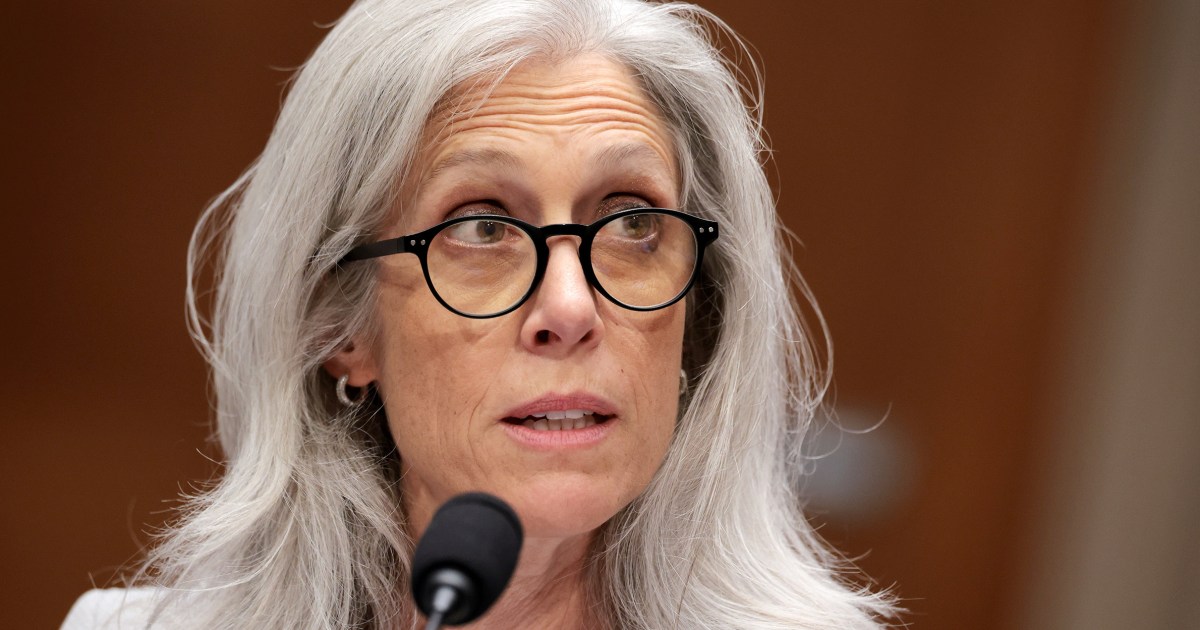WASHINGTON — Health and Human Services Secretary Robert F. Kennedy Jr.‘s controversial stance on vaccines took center stage during Susan Monarez‘s Senate confirmation hearing on Wednesday, as she seeks to become the next director of the Centers for Disease Control and Prevention (CDC).
Immediate Impact
Monarez, who holds a doctorate in microbiology and immunology, previously served as the deputy director of the Advanced Research Projects Agency for Health. Her work there focused on leveraging artificial intelligence to enhance health outcomes. If confirmed, she would be the first CDC director in over 70 years without a medical degree.
The two-hour hearing before the Senate Health, Education, Labor and Pensions Committee was largely amicable, with senators raising typical state-specific concerns such as lead poisoning, overdose deaths, and even dog sled races. Monarez assured each senator that she would address these issues if confirmed.
Key Details Emerge
The primary concern among Democratic senators was Monarez’s ability to counter Kennedy’s efforts to alter the nation’s vaccine public health infrastructure.
“Secretary Kennedy is giving a platform to people who lie about vaccines,” stated Sen. Edward Markey, D-Mass. “I hope you will be forceful in pushing back against Secretary Kennedy’s assessments and messaging to the public.”
During her tenure as acting CDC director, Monarez executed directives from the White House to remove content related to “gender ideology” from the agency’s website, a decision later reversed by judicial order. This purge included several HIV-related pages.
Industry Response
Coinciding with the hearing was a CDC vaccine advisory committee meeting to address the recommendation of a vaccine for respiratory syncytial virus (RSV). Earlier this month, Kennedy dismissed all 17 members of the Advisory Committee on Immunization Practices, replacing them with eight new members, some of whom are prominent vaccine skeptics.
Sen. Bill Cassidy, R-La., emphasized, “If the ACIP meeting today is being used to sow distrust, I would ask, as you go forward, that you make sure that there really is a balanced perspective.”
Cassidy had previously called for the meeting to be postponed until more qualified members could be appointed, but the meeting proceeded as planned.
Expert Analysis
Monarez maintained her stance on certain issues, acknowledging that vaccines save children’s lives and asserting the safety of fluoridated water. However, she often avoided directly opposing Kennedy’s decisions, including those concerning the ACIP, which frustrated many Democrats.
In a heated exchange with Sen. Maggie Hassan, D-N.H., Monarez declined to comment on her agreement with Kennedy’s past vaccine-related statements, merely stating she would be an “independent thinker” if confirmed.
“I am very concerned that a CDC nominee who says she wants to be independent and will apply science is so unwilling to speak publicly about scientific evidence that contradicts the secretary,” Hassan remarked.
Background Context
The urgency for a new CDC leader is palpable as the agency has faced significant disruption in recent months. HHS has dismantled several CDC public health programs amid Kennedy’s dissemination of vaccine misinformation, even as the nation faces a potential resurgence in measles cases.
A CDC employee, speaking anonymously, expressed the staff’s readiness for new leadership. “It is clear that CDC will be different with so many programs that have been axed. But we really need to be able to move forward with important work that ground to a halt,” the employee said.
What Comes Next
Monarez’s brief stint as acting CDC director began at the outset of President Donald Trump’s second term. She stepped down when nominated for the role after Trump’s initial nominee, former Rep. Dave Weldon, R-Fla., was withdrawn just hours before his confirmation hearing.
Weldon, known for his criticisms of the CDC and skepticism about vaccine safety, appeared unlikely to secure confirmation, partly due to his unfounded claims linking vaccines to autism.
As the confirmation process unfolds, Monarez’s ability to navigate the complex landscape of public health policy and vaccine advocacy will be closely scrutinized, with significant implications for the CDC’s future direction.
